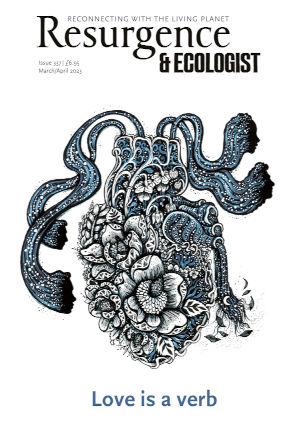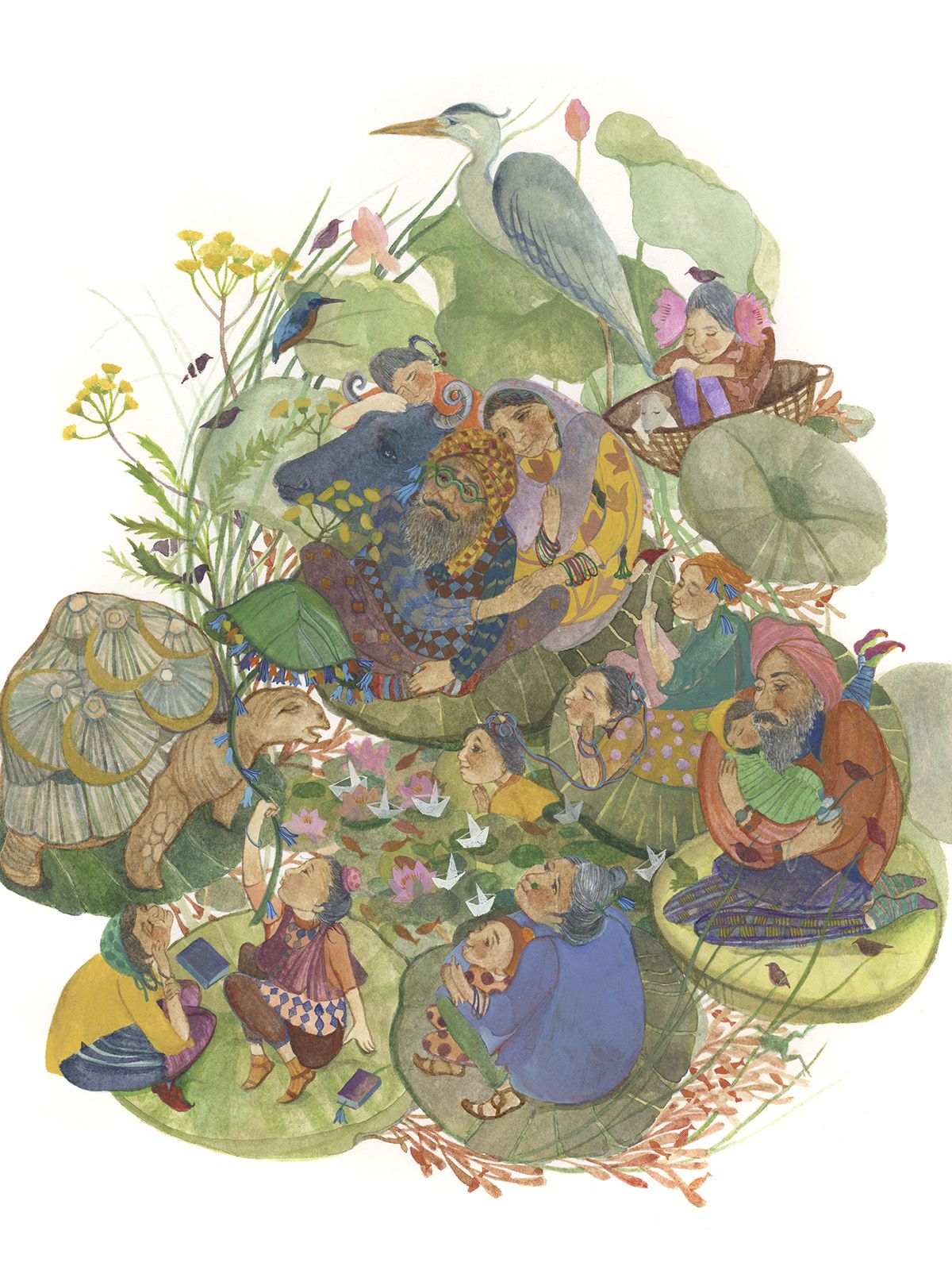“Whether we learn how to love ourselves and others will depend on the presence of a loving environment. Self love cannot flourish in isolation.”
Those are words from the late, great bell hooks in all about love: new visions, one of my favourite books. When I first read it, I was amazed at how eloquently hooks talks about love. She views love as a radical praxis both to ourselves and to others, the “willingness to nurture one’s own or another’s spiritual growth through acts of care, respect, knowing and assuming responsibility”.
When I heard of hooks’ passing in December 2021, I remembered those words and how transformative it had been to read how society fails to provide us with a proper model for loving, but also to learn that I have the power to rectify that within myself and my external relationships.
Back in the previous year, when I was having therapy, I came up with a fun analogy to help my therapist understand my state of being. I told her that my depression feels like quicksand – the more I struggle to try and get out, the more violent it gets, the more it pulls me in. So I just stopped trying to get out and let myself sink. Dark, I know, but I was weirdly proud of my own awareness.
Months later, after processing, learning, and redirecting my focus onto solutions that do create a loving environment, I’ve found myself coping better than I have all year. And that’s despite the fact that winter always announces itself with a big fat dose of seasonal affective disorder on top of my existing problems, because this is when the sun sets at 4pm and I get so little sunlight that I could be cast in a Twilight reboot.
Now, I’ve always been aware of my poor self-love and low self-esteem; it’s pretty common for people with depression. It’s evident in the way I view myself, my relationships, my (in my head) lack of achievements. But the Covid-19 pandemic had immeasurable impacts on this, taking it to a new low that I didn’t even know existed. I know I’m not the only one. If you search online for “pandemic’s impact on mental health”, you will find numerous scholarly articles and reports by academics, mental health charities and health organisations reporting how those two-plus years led to increased levels of anxiety, depression and suicidal ideation – not just in the UK, where I currently live, but across the world. Unfortunately, depression has never come with a how-to guide or a section on what to do during a global pandemic.
So I started reading other books to aid my mental health. In the past I’ve rejected ‘self-help’ books, thinking they’re all airy-fairy nonsense telling me to “just do better!” But since changing that mindset, I’ve found them to be a very useful tool for working on my ability and willingness to love and to heal. This, for me, is a lifelong commitment to myself – or, as a therapist once said to me, “the best act of self-care”.
There it is: the thing you can’t avoid in mental health conversations. Self-care has a very wide definition, and nowadays it can mean anything from reading a book to putting on a face mask to quitting your job. Its once meaningful lessons grounded in radical theory have snowballed into the Self Care Industrial Complex, championed by the carefully curated aesthetics of Instagram influencers and the beauty brand that wants you to buy the aforementioned face mask.
In an article for Refinery29, Kathleen Newman-Bremang traces the roots of self-care back to radical Black feminist scholar Audre Lorde, who wrote about self-care in her 1988 essay collection A Burst of Light. Lorde states: “Caring for myself is not self-indulgence, it is self-preservation, and that is an act of political warfare.”
Newman-Bremang rightly stipulates that this sentiment about self-care encompasses the aspect of class and race, both of which Lorde routinely analysed. Newman-Bremang shares how frustrating it is for Black people especially to be told to “take care of yourself” under the constant threat of state violence. For her, self-care is tied to community care – to nurture your community politically, socially and within your relationships, because these will nurture you back when government institutions fail said communities.
I love that article for a number of reasons, but mainly because of how well it navigates this conundrum that many of us find ourselves in. Whilst both Lorde and Newman-Bremang speak in the context of the experiences faced by Black people, I found their arguments resonate with the adversities faced by me and the wider communities I consider myself a part of, such as how South Asians living in the UK were two to three times more likely to die from Covid-19 than members of other ethnic groups. Feeling that added risk to me and my neighbours living in a heavily South Asian area of East London but not knowing how to mitigate it when many South Asians work in occupations that have greater exposure and higher chances of Covid-19 fatalities. Or how students were under immense pressure but had zero support from any institution and were left fending for themselves whilst universities and landlords took them for every last penny.
And, looking across the world at climate-induced disasters, in which over 30 million people were displaced in some of the worst floods Pakistan has ever seen, how do you tell people going through that to take care of themselves? And how do you begin to consider how many people have been plunged into depression after losing their jobs, when so many others have been overexploited and overworked in theirs?
And then there is the current cost of living crisis, spearheaded in the UK by a government that puts profit over the welfare of the people it’s meant to serve. If you’re like me, and your existing mental health condition got dramatically worse as a result, and each day of uncertainty pulls you further into the quicksand, how can you even begin to think about self-care or managing mental health problems?
Recently I saw an advert on TV for a nutritional supplement company, with British singer Cheryl Cole as the poster girl for health, clear skin and a good life. “Self-care starts here!” she says. Cue a montage of her getting her hair blow-dried by three people, and sitting on top of a yoga ball in a meditation pose. “Namaste,” she says as she winks at the camera, and I’ve never cringed so hard. A hardly relevant celebrity with far more money than I’ll probably ever have telling me that the solution is to take vitamins with her branding on the packaging really epitomises this appropriation.
The point is that you can’t slap a self-care sticker onto structural issues that have direct consequences for both our physical and our mental health. That’s why investing in your community is important, because that’s who is left when the government’s policies aren’t protecting you, you’re burnt out but you don’t have the means to take time off work, or you have a long-term mental health condition that needs help and support. Capitalism encourages individualism precisely because communities working together are harder to break down than individuals who are taught to just fend for themselves. Individualistic methods of self-care promote overindulgent consumerism and isolation, feeding right into capitalism’s jaws.
I’m not perfect, of course. I still struggle with it, and I’m not saying that you can never ever indulge. Sometimes I get guilted into buying something or being drawn in by the Netflix algorithm putting my comfort show at the top of the home page. But when I think about it, when I really think about it, those aren’t long-term solutions. They’re quick fixes that only help me feel better for a few hours and sustain the conditions that make me feel this way in the first place. You’ll inevitably see that tagline that always comes up when talking about self-love or self-care – to choose yourself. That can mean many things in many different contexts. But in this one, it’s worth considering how to incorporate solutions that involve the people around you, because when you choose a community, you are choosing yourself.
“Rarely, if ever, are any of us healed in isolation. Healing is an act of communion,” hooks said, and these current times have proved that more than ever.
Something that I took away from Newman-Bremang’s article is that she believes it’s about “looking around and making sure your life is sustainable and your people are protected as much as possible”. It’s asking yourself how you can alleviate the harm done to those around you by the system that keeps us overworked, exhausted, and unable to prioritise our health and wellbeing (unless you have copious amounts of money to spare).
And that doesn’t have to be big. It can be looking out for your friends and family, who are your closest community.
Each week at my local Saturday market there is a Pakistani food vendor whom I’ve befriended. I enjoy inhaling the familiar smell of spices that cuts through the cold air, and seeing him smile as he recognises me and says hello. I remember the first time I came across his stall, and he said, “There aren’t many Pakistanis around here, so take the food for free,” despite my customary objections. I have felt the irreplaceable sense of kinship and hospitality of our culture ever. Visiting his stall became a form of comfort for me when I was too depressed to make proper meals for myself, or when I missed being near my grandparents, whose biggest delight is to make sure I’m well fed.
This doesn’t mean totally abandoning everything you do for yourself – of course not. You can’t totally rely on others and you have to have a sense of responsibility for your own wellbeing. Last one, I promise, but hooks starts the chapter on communal love with a quote from Parker Palmer: “Only as we are in communion with ourselves can we find community with others.” I carry that with me on my journey of self-love and self-care. Making sure your life is sustainable is to make lifestyle choices that are as healthy and beneficial to you as you can, but to do that as well as nurturing the bonds with those around you, bettering each other’s conditions, helping each other grow and overcome the challenges we face. That gives me some hope that this year will be a little bit easier than what we’ve already endured.
This is an edited version of an article that first appeared in The Lipstick Politico, a South Asian digital magazine.








